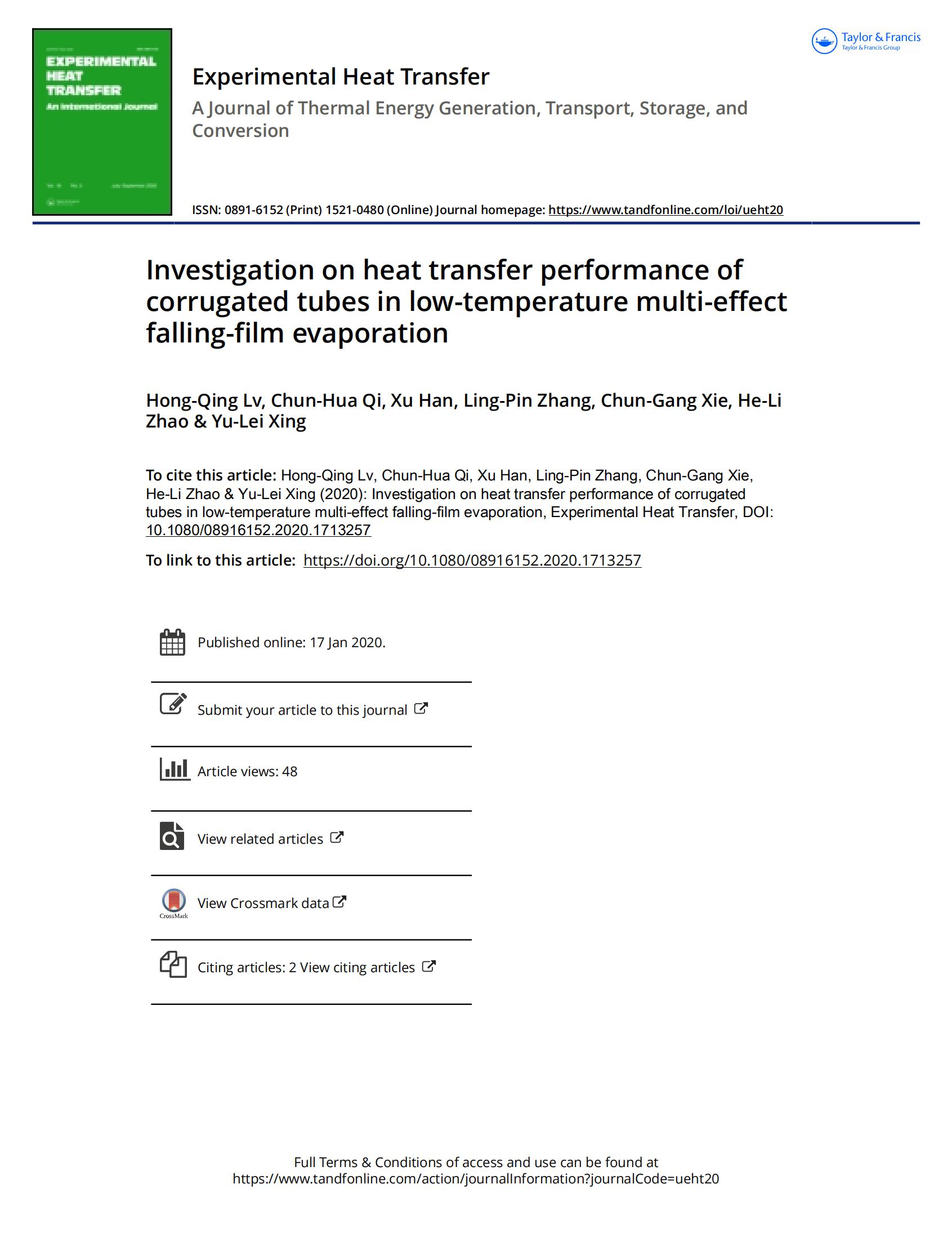he enhanced heat transfer performance of falling film evaporation during desalination through altering smooth tubes by corrugated tubes was investigated. An experimental research on corrugated and smooth tubes was carried out using a horizontal-tube falling-film evaporation heat transfer experimental apparatus. The changes in heat transfer coefficient with the process parameters (sprinkling density, heat flux, heat transfer temperature difference, and evaporation temperature) were obtained according to the experimental data. The influence of tube type on liquid-film distribution outside the tube was also examined by numerical simulation. Results showed that within a certain scope increasing of any one variable of sprinkling density, heat flux, and evaporation temperature has a positive impact on the heat transfer coefficient. When the sprinkling density exceeded 0.178 kg/(m·s), the heat transfer coefficient tended to be stable. Compared with the simulation results, the liquid film coverage and thickness outside the tube significantly influenced heat transfer efficiency. When the heat flux exceeded 130kW/m2, the growth of the heat transfer coefficient significantly slowed down. Under the same experimental conditions, the heat transfer coefficient of corrugated tubes increased by 30% compared with that of smooth tubes. In addition, the content of non-condensable gas within the seawater affected the heat transfer coefficient significantly.
